2008 Kawasaki Ninja 250R Review - Motorcycle.com
The year was 1988 and I was standing at the entrance of Coleman Powersports in Arlington, VA, looking at a sea of chrome, plastic and metal. I’d bought my first bike there and after one summer and 3,000 miles on a 200cc machine, I was ready to move up. Right smack in front of me were two black and red sportbikes that looked more like Samurai blades than anything else. The Ninja 250 and the Ninja 600 parked nose-to-nose made my heart race with thoughts of screaming past the DC police at 3 am on my way home from a night of slam dancing at the 9:30 Club. I sat on both, decided that with thirty-five dollars and only a six-pack to my name, I couldn’t afford the 600. And why buy a 250 when I was moving up from a 200cc bike?
Fast forward 20 years and I’m swinging my leg over a bright red (just like my hair) 2008 Ninja 250R ready for a road test. There are so many new aspects to the 2008; it’s hard to know where to start. First and foremost, this little screamer doesn’t even look like a 250. The new sleek and contemporary body styling more closely mirrors that of the 600 model. Kawasaki wisely left off the 250 sticker, so only a true bike-ofile would know the difference. There’s a new windscreen, new 2-into-1 exhaust with single canister and a new two-piece seat with optional rear seat cowl ($99.95) to finish off the sporty look. Wow.
At 5-foot-1, the new 30.5-inch seat height had me on my tippy-toes, but the bike is so light (reported 333 lbs. dry, up nearly 30 lbs) this was hardly a concern. The narrow seat certainly helps those of us who belong to the inseam-challenged group or the new rider who feels most comfortable with both feet down. Kawasaki research indicates that 62% of Ninja 250 owners are new riders, and 33% of that group is women. Being able to plant both feet firmly on the ground is one of the most cited concerns for all beginning riders who are purchasing their first bike.
Once in the saddle, the seating position is a tad sportier and more forward sloping than before, but still quite upright with an easy, comfortable reach to the high and wide bars. This makes a trip through city traffic much easier than one might be if reaching for low-slung clip-ons. Reach from seat to footpegs was so comfortable I had to make myself take note. Levers are easy to command and the feel is quick and responsive. The clutch engaged rather far out, but even with my 2.5-percentile hand, I had no problems.
New for 2008 is a large speedo right in the center, with a tach to the left and new gas gauge to the right. Apparently a gas gauge is important to Ninja 250 owners, so now they have a big juicy one. At first I thought I would miss the center tach, as my last experience with the previous model was thumb-wrestling riders at a Kawasaki-sponsored trackday to see who would get to ride the screamin' little 250s. Keeping an eye on revs is crucial when trying to ride as fast as you can on the track, not so for street riding, which is the most common use of the 250. Big speedo, good. Gas gauge, better.
There are so many improvements to the 2008 250R it gets difficult to focus on what might be the one best change-up, but perhaps the most important upgrade is the move up to 17-inch wheels. I never had much trouble finding 16-inch rubber for the old bike because I knew where to look, but my test group seemed to agree that the new six-spoke wheels, wider rims and more accessible modern tire selection was at the top of the list, with an A+ for more neutral handling at low and high speeds. The new and larger 290mm front and 220mm rear petal-style rotors with dual-piston calipers give the ’08 250 much improved and noticeably more sportbike-like stopping power.
For me the most notable improvement is the suspension. I’ve put plenty of miles on the previous model and the ride always had an uncertain soft feeling. A 37mm Showa (36mm on previous model) front fork and a new Kayaba rear shock with five-way adjustable pre-load make for a stiffer and more precise, crisp ride. Surely adding to this stability is the improved chassis with diamond-type frame. The 26-degree rake angle is 1 degree steeper than the old 250, so the quarter-liter Ninja turns quickly and with seemingly little effort, making it loads of fun through tight twisty canyons.
Rounding out all of the improvements that make this little Ninja feel like a big bike is the newly engineered 249cc parallel-Twin motor. Although it’s based on the previous engine, Kawi says 70% of it has been re-designed, including new cams and a revised cylinder head, to result in a claimed 30% bump in mid-range power. Dual Keihin carburetors were fitted instead of a fuel-injection system. Fuel injection, although standard on the European models, would have pushed the sales price above the $4000 threshold where the American market allegedly draws the line. The Ninja’s powerplant engineer, Kozo Arai (no not the helmet guy!), was on hand to oversee our test rides, and although he spoke absolutely no English, he did show me his club-racing license from Japan where he competes on a ZX-10R, so you know the right guy was working on this project!
Weighing quite a bit less than the average test rider in our group, I had no problems with acceleration. Throttle response was even and predictable, another big plus for beginners. The bike seemed most happy at a steady 8-9 grand in every gear. I rode the little Ninja right up to redline in every gear and it pulled steadily all the way through. The best part was that I couldn’t even scare myself – I was laughing like a crazy maniac!
Since its inception in 1986, the Ninja 250 has been among the best-selling bikes in Kawasaki’s line up. In fact, Kawi sold more little Ninjas in 2007 than anything else in its lineup! Most buyers are beginners, but many keep the highly fuel-efficient little Ninja for commuting. The 2008 version claims 50 mpg from its 4.8-gallon tank. After 100 miles of city, freeway and canyon riding, I still had well over half a tank on the dial.
Read all of the statistics you want, the new Ninja 250R is just a flat-out blast to ride. Wind it up and let it go, it screams and howls like a factory racer. It’s sleek, sporty, and has a big bike feel without the struggle or the price tag. I was so busy having fun that I barely noticed the bike beneath me and had to force myself to focus on testing the components.
While the new Ninja 250R has been a favorite among beginners, this new version was also designed to capture the heart of the more aggressive, mature rider. And, at an MSRP of just $3499 it’s right on the money.
________________________
Alice Sexton is Director of Communications with the American Historic Racing Motorcycle Association (AHRMA), and has been riding motorcycles for 20 years.
Related Reading
250cc Shootout
Kawasaki 250R Forums
More by Alice Sexton



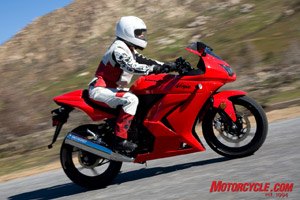




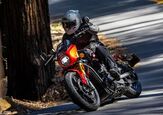
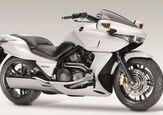
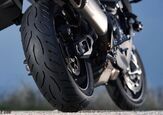
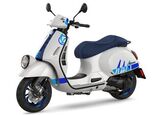
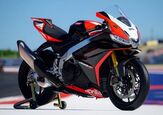
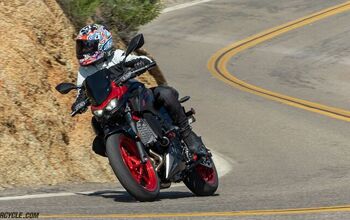
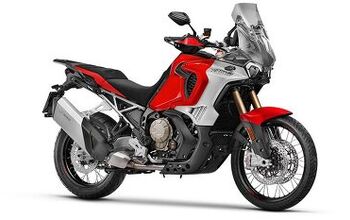
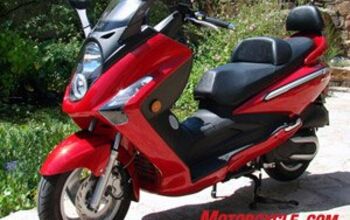
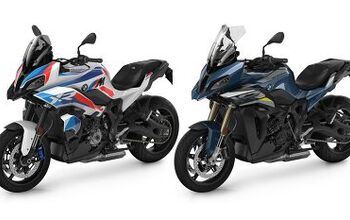
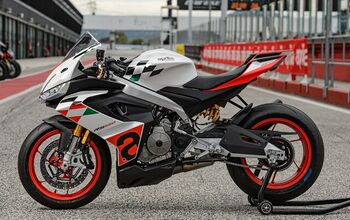
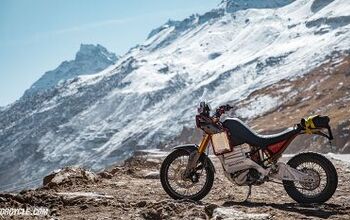
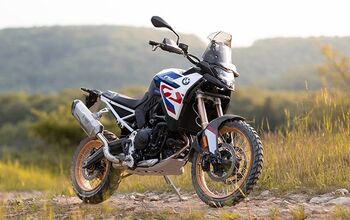
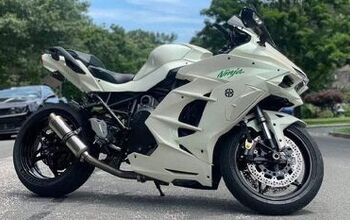
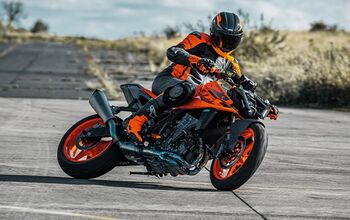
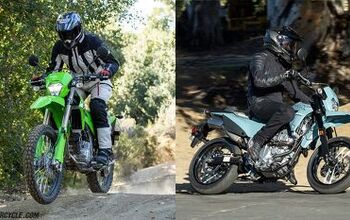
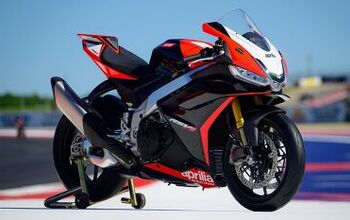
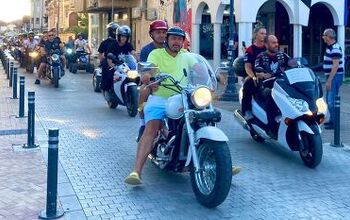
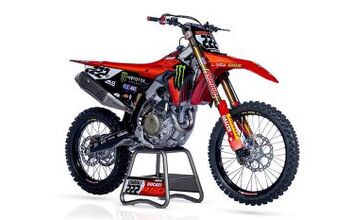
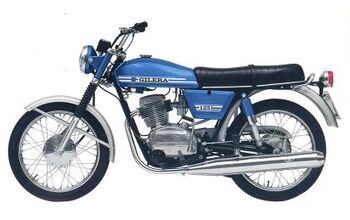
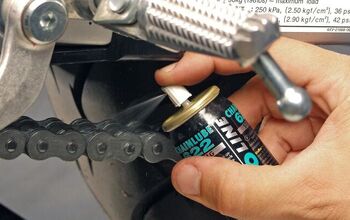
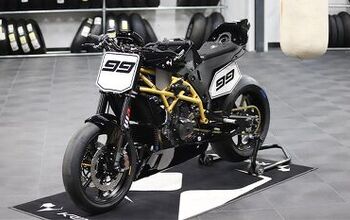
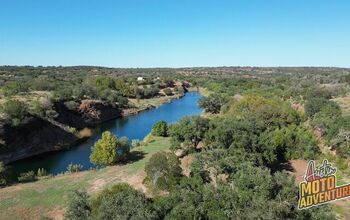

Comments
Join the conversation